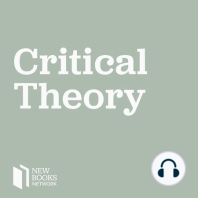71 min listen

Madina Tlostanova, "What Does it Mean to be Post-Soviet? Decolonial Art from the Ruins of the Soviet Empire" (Duke UP, 2018)
Madina Tlostanova, "What Does it Mean to be Post-Soviet? Decolonial Art from the Ruins of the Soviet Empire" (Duke UP, 2018)
ratings:
Length:
58 minutes
Released:
Aug 14, 2020
Format:
Podcast episode
Description
In What Does it Mean to be Post-Soviet? Decolonial Art from the Ruins of the Soviet Empire (Duke University Press, 2018), Madina Tlostanova traces how contemporary post-Soviet art mediates this human condition. Observing how the concept of the happy future—which was at the core of the project of Soviet modernity—has lapsed from the post-Soviet imagination, Tlostanova shows how the possible way out of such a sense of futurelessness lies in the engagement with activist art. She interviews artists, art collectives, and writers such as Estonian artist Liina Siib, Uzbek artist Vyacheslav Akhunov, and Azerbaijani writer Afanassy Mamedov who frame the post-Soviet condition through the experience and expression of community, space, temporality, gender, and negotiating the demands of the state and the market. In foregrounding the unfolding aesthesis and activism in the post-Soviet space, Tlostanova emphasizes the important role that decolonial art plays in providing the foundation upon which to build new modes of thought and a decolonial future.
Madina Tlostanova is professor of postcolonial feminisms at Linköping University (Sweden).
Steven Seegel is professor of history at University of Northern Colorado.
Learn more about your ad choices. Visit megaphone.fm/adchoices
Madina Tlostanova is professor of postcolonial feminisms at Linköping University (Sweden).
Steven Seegel is professor of history at University of Northern Colorado.
Learn more about your ad choices. Visit megaphone.fm/adchoices
Released:
Aug 14, 2020
Format:
Podcast episode
Titles in the series (100)
Lynne Huffer, “Are the Lips a Grave? A Queer Feminist on the Ethics of Sex” (Columbia University Press, 2013): In her fourth book, Lynne Huffer argues for a restored queer feminism to find new ways of thinking about sex and about ethics. Are the Lips a Grave? A Queer Feminist on the Ethics of Sex (Columbia University Press, by New Books in Critical Theory